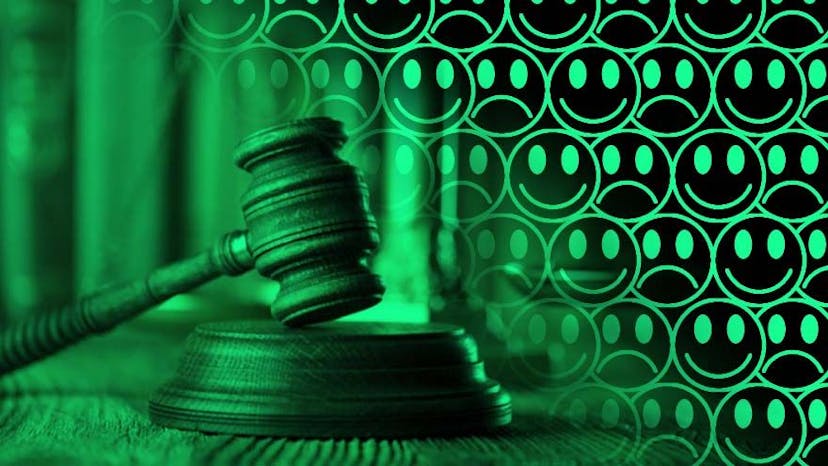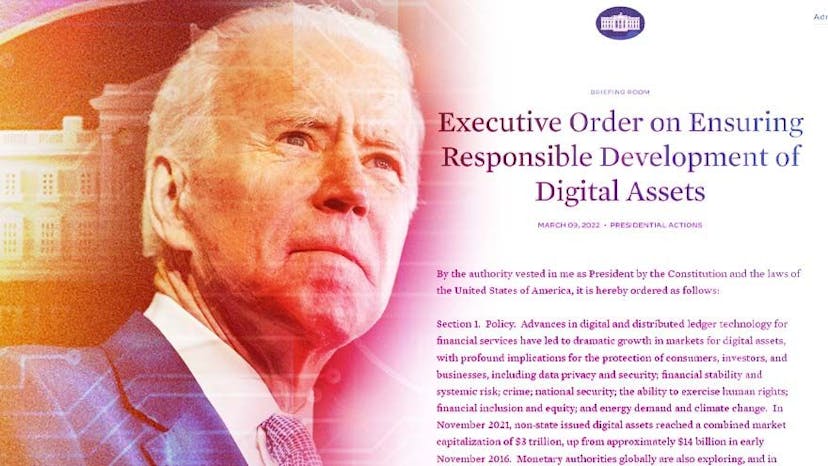DAOs Should Embrace Regulation Not Fear It
Guest writer Ryan Berkun says regulation can help DAOs organize and manage their missions.
By: Ryan Berkun • Loading...
Research & Opinion
More than $200M is currently locked in DeFi protocols, which indicates massive market potential given DeFi’s relatively recent rise. Regulators are paying attention and cracking down on centralized platforms offering DeFi services. BlockFi’s recent $100M settlement with the U.S. Securities and Exchange Commission and agreement to register its crypto lending product is a warning to all DeFi platforms of what’s to come.
Regulator enforcement is inevitable, as President Biden’s executive order last week made clear. Rather than resisting this certainty, DAOs (decentralized autonomous organizations) should welcome compliance as a strategic way to legitimize and grow DAO membership. Just look at the success of Syndicate DAO, which grew to encapsulate 10% of all DAOs in weeks. Why the rapid growth? Syndicate DAO provides users launching through their platform with all the legal documentation needed to set up investing groups compliantly.
DAOs may be disruptive, but that doesn’t mean they won’t thrive within legal boundaries. It’s time for DAO creators and lawmakers to redraw the lines.
The Rise of DAOs Makes Regulation Inevitable
DAOs are self-governing entities: instead of relying on CEOs and CFOs to control organization funds, DAOs are enforced by blockchain-based smart contracts, the rules of which are determined by DAO member votes. Put simply, DAOs offer entrepreneurial groups a radically democratized way to run their organizations, whether they are investment companies, social groups, or artifact hunters.
For example, a DAO’s creators can program funds to be released for philanthropic purposes once a target income goal is reached. The DAO members, who stand on equal footing with each other, can vote to determine the recipient. The smart contract will automatically tally those votes and execute the decision without relying on a human intermediary.
Crypto Community Relieved by Biden Order’s Balance Yet Wary as Oversight Regime Takes Shape

Crypto Community Relieved by Biden Order’s Balance Yet Wary as Oversight Regime Takes Shape
The Biden Administration's executive order on crypto was surprising, and comprehensive.
The benefits of belonging to a DAO are enticing a growing number of users. According to DeepDAO, a DAO analytics engine, the entire ecosystem consists of over 4,000 organizations managed by 1.8M members controlling a treasury of $7.7B. The mainstream has taken notice of this emerging governance structure, which means governments are watching and, in some cases, participating, too.
For example, Wyoming became the first government in the world to pass a law allowing DAO members to defend voting rights, proposal outcomes, and executed transactions in court. In late 2021, El Salvador became the first country to authorize bitcoin as legal tender. This past February, the Marshall Islands formally recognized DAOs as legal entities, creating a legal pathway for DAOs to work with centralized organizations and established corporations to implement DAOs into their infrastructure.
Without Regulations, DAOs are Vulnerable to Dissolution and Corruption
DAOs become more powerful (and their tokens more valuable) as their memberships grow. So what will make DAOs more attractive? For one, protocols that protect members and their assets. Unless DAOs are granted government-approved business status, they and their members risk losing everything in litigation. Except for in Wyoming and the Marshall Islands, DAOs do not have legally enforceable rights. Their smart contracts may execute actions, but those actions are not recognized or enforceable by law.
DAOs are more democratic than any other organizational structure, but they are imperfect. That’s because founding members struggle to trust that the entire community within their DAO understands the organization’s values or is as invested in its success as the core team. Consequently, most DAOs require members to purchase their votes, a costly gatekeeping technique limiting member participation to a handful of stakeholders.
At their worst, DAOs can look much more like oligarchies than the horizontally-distributed democracies of promise. Although government regulation risks deploying the bureaucratic and inequitable power dynamics DAOs seek to avoid, they may also prevent DAOs from becoming crypto-native experiments in corporate corruption.
These concerns mirror those governments and centralized organizations share about engaging with DAOs. Regulating entities like the Security Exchange Commission (SEC), Federal Reserve, Department of Treasury, and the Commodities Futures Trading Corporation (CFTC) are already concerned about crypto assets’ stability, custody, and securities. While many DAO advocates resist the thought of government regulation, compliance presents the industry with currently non-existent safeguards.
The Challenges and Opportunities of DAO Regulations
DAOs are appealing because of their decentralization. Can legislators create laws that ensure compliance without requiring managers to file taxes, sign legal agreements, or open bank accounts? Although DAOs are corporate (because they are shared by all group members), they are not corporations. Forcing them to behave like corporations removes much of their appeal and usefulness.
Can DAO creators program smart contracts designed with anti-money laundering compliance in mind while continuing to push toward equal, community ownership? Such protocols will strengthen DAO legitimacy and appeal to the DAO-curious on the edge of adoption (including traditional organizations that could form mutually beneficial partnerships with DAOs).
Creators and legislators ignore DAO liabilities and security gaps at their peril. While it isn’t yet clear what it will look like, a radically alternative structure is the most likely solution. DAOs have made much more than a splash – they form a tidal wave crashing into conventional economic landscapes. Whether the world is ready for it or not, DAOs demand something new.
Ryan Berkun is the founder and CEO ofTeller.
Advertisement
Get the best of The Defiant directly in your inbox 💌
Know what matters in Web3 with The Defiant Daily newsletter, every weekday
90k+ investors informed every day. Unsubscribe anytime.